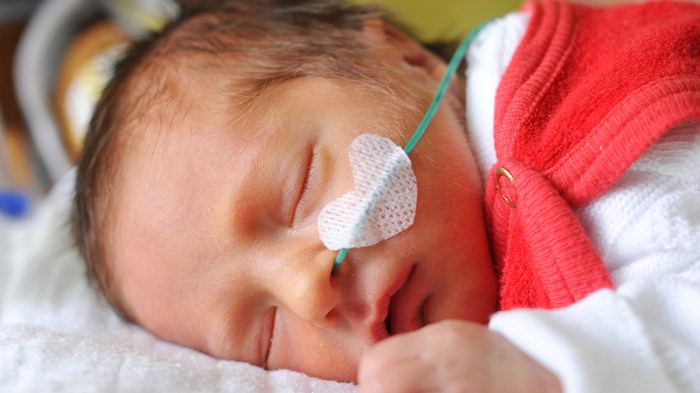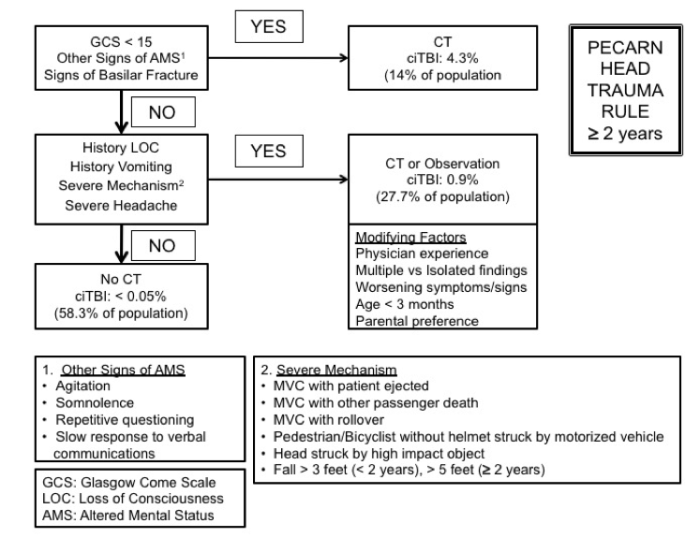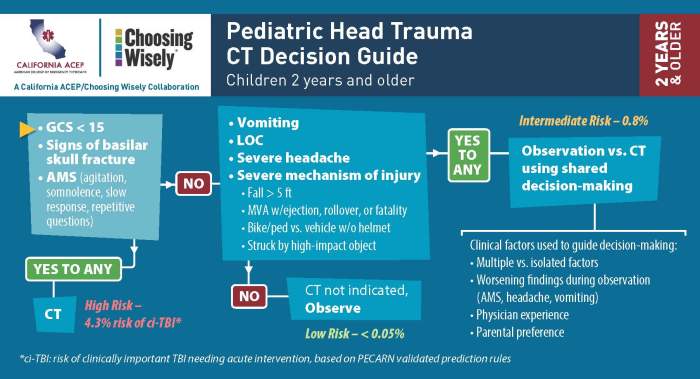Pediatric head trauma training ky – Pediatric head trauma training in Kentucky empowers healthcare professionals with the specialized knowledge and skills necessary to effectively manage head injuries in children. This comprehensive training program delves into the unique characteristics of pediatric head trauma, providing a foundation for evidence-based decision-making and optimal patient care.
Head trauma is a leading cause of morbidity and mortality among children, and specialized training is crucial for healthcare professionals to recognize, diagnose, and manage these injuries effectively. The Kentucky-based training program equips healthcare providers with the latest advancements in pediatric head trauma care, ensuring they are well-prepared to provide the highest quality of care to young patients.
Introduction to Pediatric Head Trauma
Pediatric head trauma is a significant health concern, affecting children of all ages. It encompasses a wide range of injuries to the head and brain, from mild concussions to severe traumatic brain injuries (TBIs). Understanding the unique characteristics of head trauma in children is crucial for early recognition, accurate diagnosis, and effective management.
Types of Pediatric Head Trauma

Head trauma in children can be classified into several types based on the severity and mechanism of injury:
- Concussion:A mild TBI caused by a blow to the head, resulting in temporary alteration of brain function and symptoms such as confusion, disorientation, and headache.
- Skull Fracture:A break in the skull bone, which can be linear, depressed, or comminuted, and may be associated with underlying brain injury.
- Epidural Hematoma:A collection of blood between the skull and the dura mater, a tough membrane covering the brain.
- Subdural Hematoma:A collection of blood between the dura mater and the brain’s surface.
- Intracerebral Hemorrhage:Bleeding within the brain tissue itself.
Signs and Symptoms of Pediatric Head Trauma

Recognizing the signs and symptoms of head trauma in children is crucial for prompt intervention. Common symptoms include:
- Loss of consciousness
- Confusion or disorientation
- Headache
- Nausea or vomiting
- Seizures
- Changes in behavior or mood
- Balance or coordination problems
- Difficulty speaking or understanding speech
- Pupil dilation or unequal pupils
- Clear or bloody fluid draining from the ears or nose
Diagnosis and Assessment of Pediatric Head Trauma: Pediatric Head Trauma Training Ky

Diagnosis of head trauma in children involves a thorough medical history, physical examination, and imaging studies:
- Medical History:Includes details of the injury mechanism, symptoms, and past medical history.
- Physical Examination:Assesses vital signs, neurological status, and any visible injuries or deformities.
- Imaging Studies:Computed tomography (CT) scan or magnetic resonance imaging (MRI) are used to visualize the brain and identify any injuries or abnormalities.
Treatment and Management of Pediatric Head Trauma
Treatment options for pediatric head trauma depend on the severity and type of injury:
- Conservative Management:For mild head injuries, observation, rest, and pain medication may be sufficient.
- Surgical Management:For more severe injuries, surgery may be necessary to remove blood clots, repair skull fractures, or relieve pressure on the brain.
- Medications:Anticonvulsants may be used to prevent seizures, while antibiotics may be necessary to treat infections.
Rehabilitation and Recovery from Pediatric Head Trauma
Recovery from head trauma in children involves a multidisciplinary approach:
- Physical Therapy:To improve mobility, coordination, and balance.
- Occupational Therapy:To enhance cognitive skills, daily living activities, and social interaction.
- Speech Therapy:To address speech, language, and communication difficulties.
- Cognitive Rehabilitation:To improve attention, memory, and problem-solving abilities.
- Psychological Support:To address emotional and behavioral challenges associated with head trauma.
Essential FAQs
What are the key benefits of pediatric head trauma training?
Pediatric head trauma training provides healthcare professionals with the specialized knowledge and skills to effectively manage head injuries in children, leading to improved patient outcomes and reduced morbidity and mortality.
Who should consider pediatric head trauma training?
Healthcare professionals involved in the care of children, including physicians, nurses, emergency medical technicians, and allied health professionals, should consider pediatric head trauma training to enhance their ability to provide optimal care to young patients.
What topics are covered in pediatric head trauma training?
Pediatric head trauma training typically covers a wide range of topics, including the epidemiology, pathophysiology, diagnosis, management, and rehabilitation of head injuries in children.